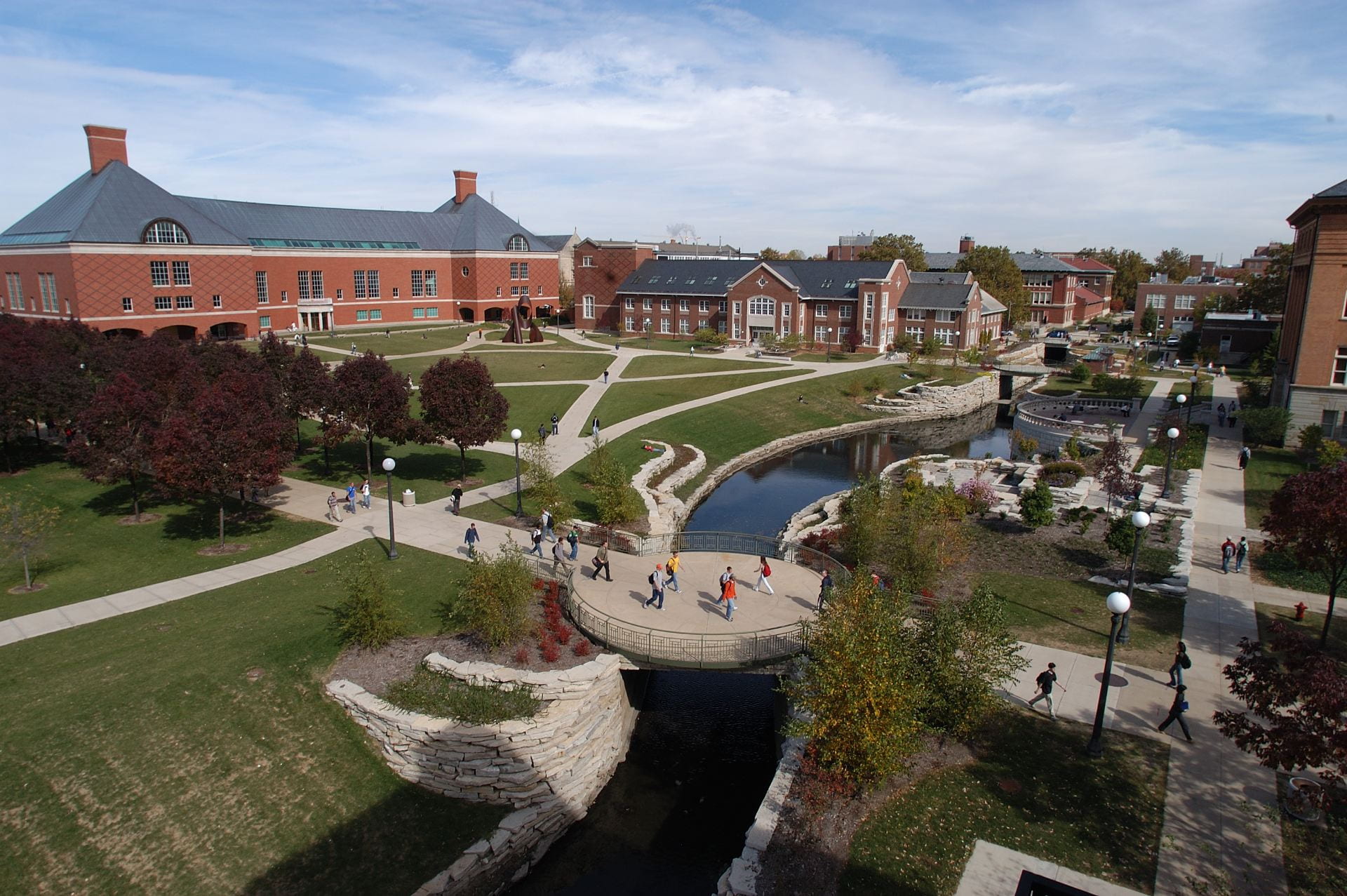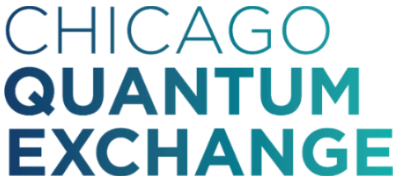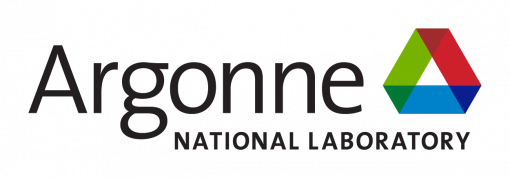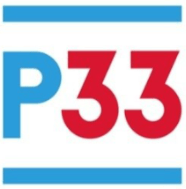Ecosystem Facilities
Opportunity to access state-of-the-art facilities.
Duality participants have the opportunity to gain critical business resources to accelerate their technology development, as well as opportunities to access state-of-the-art computing, materials processing, quantum measurement, and other resources, subject to approval by the relevant facility and compliance with its policies and procedures.
Computational:
- Leadership Computing Facility at Argonne National Laboratory
- National Center for Supercomputing Applications (NCSA) at the University of Illinois Urbana-Champaign
- Coordinated Science Lab (CSL) at the University of Illinois Urbana-Champaign
Materials Preparation, Measurement, Characterization and Nanofabrication:
- Pritzker Nanofabrication Facility at the University of Chicago
- Materials Research Center (MRSEC) at the University of Chicago
- Center for Nanoscale Materials (CNM) at Argonne National Laboratory
- Advanced Photon Source (APS) at Argonne National Laboratory
- Clean Room at the University of Illinois Urbana-Champaign
- Materials Research Laboratory at the University of Illinois Urbana-Champaign
- Holonyak Micro and Nanotechnology Lab (HMNTL) at the University of Illinois Urbana-Champaign
Machine Shops and Prototyping Facilities:
- Student Machine Shop at the University of Chicago
- Central Machine Shop at the University of Chicago
- Polsky Fabrication Lab at the University of Chicago
- Innovation Studio at the University of Illinois Urbana-Champaign
- Maker Lab at the University of Illinois Urbana-Champaign
Quantum and Other Testbeds:
- Quantum Loop Testbed at Argonne National Laboratory
- Hybrid Quantum Networks (HQAN) Testbed at the University of Illinois Urbana-Champaign
- Verizon 5G Innovation Hub at the University of Illinois Urbana-Champaign
- EnterpriseWorks Incubator at the University of Illinois Urbana-Champaign
Argonne National Laboratory
- For more detailed information about accessing the Argonne facilities, please visit this Engaging with Argonne National Laboratory FAQ page.
The University of Illinois at Urbana-Champaign
- For more detailed information about accessing the University of Illinois laboratory equipment and facilities, please visit this Campus Resource page.
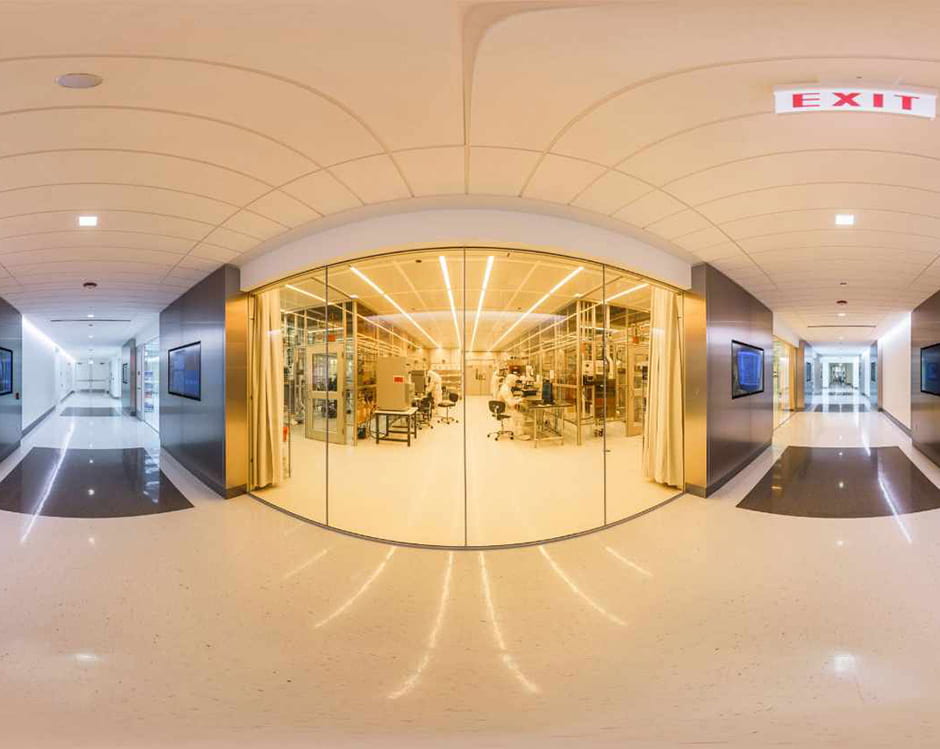
Pritzker Nanofabrication Facility
The University of Chicago Pritzker Nanofabrication Facility at the Pritzker School of Molecular Engineering is an open-access, 10,000-square-foot ISO Class 5 research cleanroom that provides advanced lithographic processing of hard and soft materials. This facility includes a full suite of optical and electron beam lithography tools; physical vapor deposition tools, including electron beam evaporators and sputter systems; atomic layer deposition; plasma etching tools using both fluorine- and chlorine-based chemistries; tube furnaces for nitride and oxide growth as well as annealing; and wet benches to accommodate most wet processing needs. Inspection tools include scanning electron as well as advanced optical microscopy, profilometry, ellipsometry, and thin-film interferometry. Learn More.
Nuclear Magnetic Resonance Facility
The University of Chicago Nuclear Magnetic Resonance (NMR) facility in the Chemistry Department supports the entire campus with access to equipment and free training for characterization of solutions of chemical compounds. In labs open to trained users 24/7, researchers operate equipment themselves and pay recharge fees for instrument time. Labs in three buildings primarily support synthetic chemistry, but other applications are very welcome. The Searle and Gordon Center NMR labs house two 400 MHz automated spectrometers and three manually operated 500 MHz instruments. One instrument features an optical apparatus for NMR monitoring of photochemical reactions. The Searle lab features a small wet lab enabling titrations and kinetics/reaction monitoring. There is also an electron paramagnetic resonance (EPR) instrument (X-band with cryocooler) in the Jones building for studying paramagnetic compounds. Off-campus users can be accommodated with special arrangement. Learn More.
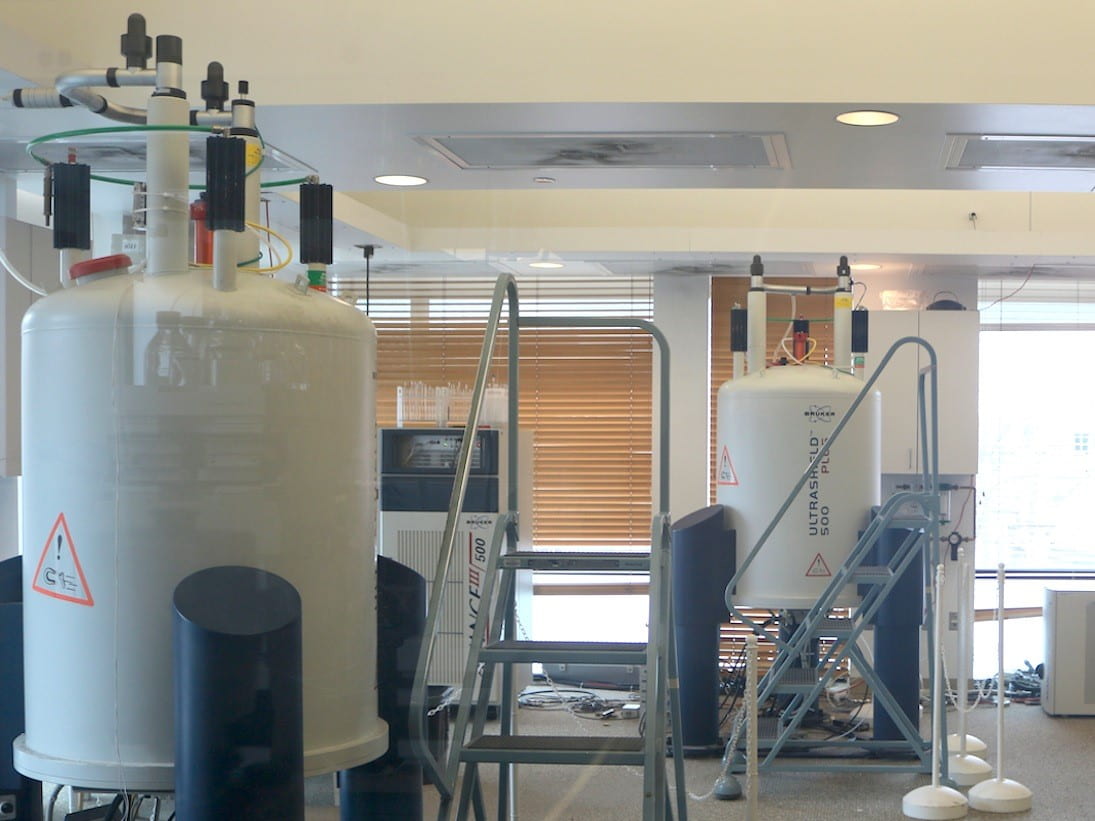
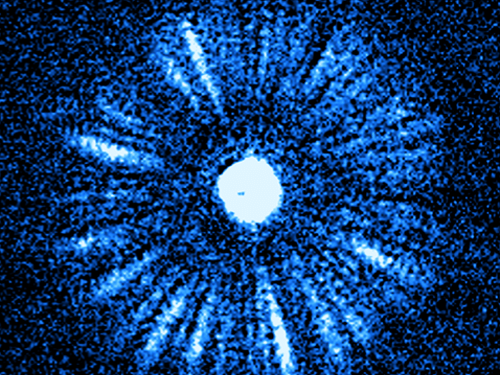
Materials Research Science and Engineering Center Shared Facility
The University of Chicago MRSEC maintains a robust set of shared research facilities with resources for creating, characterizing, measuring, and imaging many types of hard and soft materials. All facilities are open-access and available to any interested internal or external user from academia, industry, or elsewhere. Instrumentation includes tools for microscopy (scanning electron, scanning probe, optical metrology), X-ray and ultra-high-speed imaging, spectroscopy (EDS, Raman, fluorescence, ellipsometry, spectrophotometry), rheometry, thermal processing, surface preparation and characterization, low-temperature magnetic and electrical characterization, and digital fabrication including 3D printers, laser and waterjet cutters, and a full student shop. Computational resources include COMSOL. Learn More.
X-Ray Research Facility
The University of Chicago X-ray Research Facility provides access to state-of-the-art X-ray diffraction, scattering, and spectroscopy techniques. The lab performs perform routine and non-routine small-molecule single-crystal X-ray structure determination and X-ray powder diffraction analysis for a variety of samples. Small angle scattering techniques can be used to probe a broad range of particle sizes starting from a few nanometers. X-ray photoelectron spectroscopy is utilized for analysis of the surface chemistry, and X-ray fluorescence is used for elemental analysis of bulk materials. Learn More.
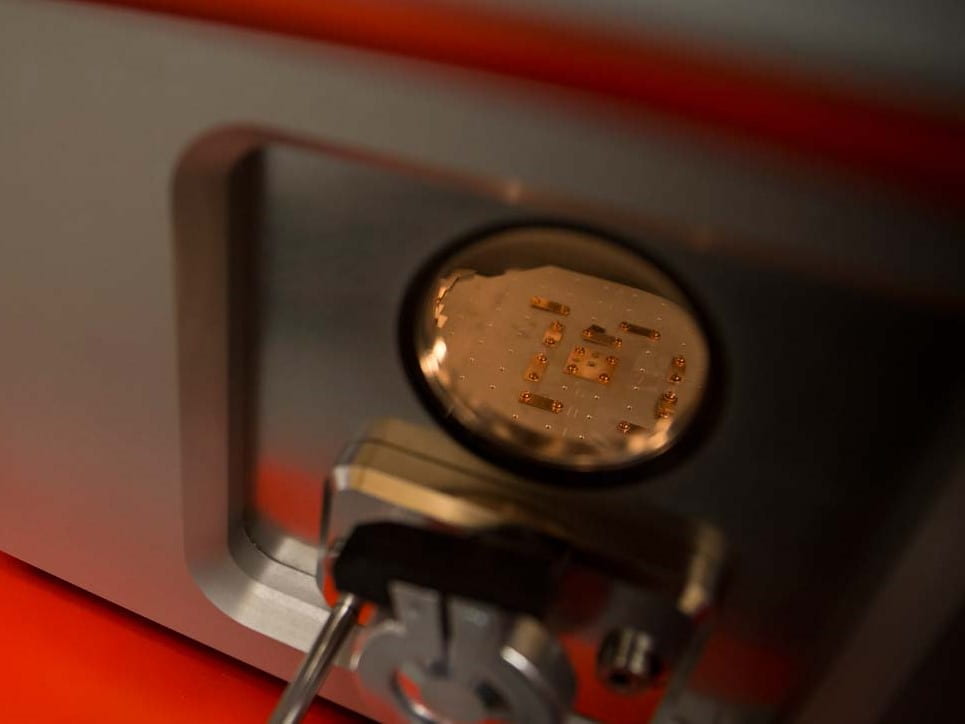
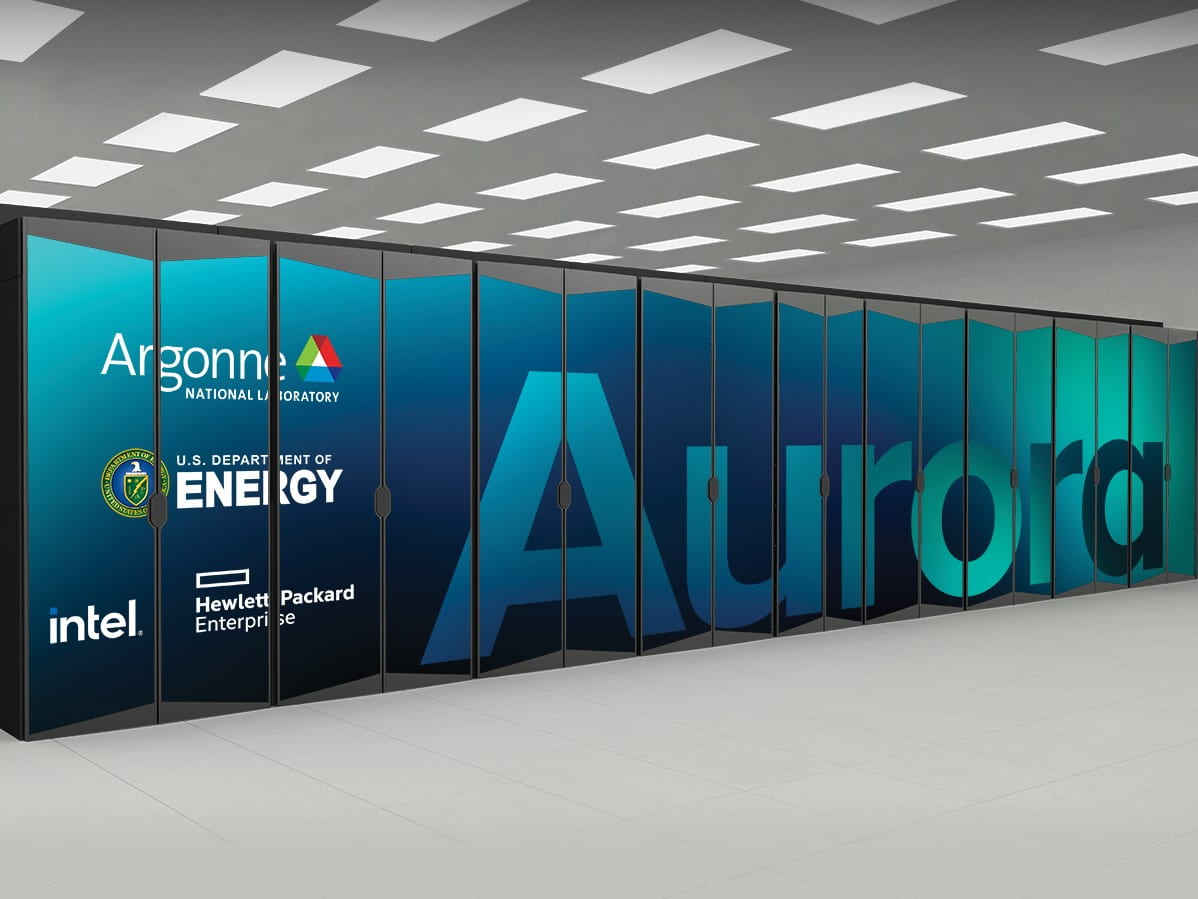
Argonne Leadership Computing Facility
The Argonne Leadership Computing Facility (ALCF), a US Department of Energy (DOE) Office of Science User Facility located at Argonne National Laboratory, enables breakthroughs in science and engineering by providing supercomputing resources and expertise to research programs, and is the future home of Argonne’s first exascale system, Aurora. Supported by the DOE’s Advanced Scientific Computing Research program, the ALCF and its partner organization, the Oak Ridge Leadership Computing Facility, operate leadership-class supercomputers that are orders of magnitude more powerful than the systems typically used for open science. Additionally, the ALCF’s Theta/ThetaGPU supercomputer performs complex and diverse workloads, integrating data analytics with AI training and learning into a single platform. Learn More.
Advanced Photon Source
The US Department of Energy’s Advanced Photon Source (APS) at Argonne National Laboratory is one of the world’s most productive X-ray light source facilities. The APS provides high-brightness X-ray beams to a diverse community of researchers in materials science, chemistry, condensed matter physics, the life and environmental sciences, and applied research. These X-rays are ideally suited for explorations of materials and biological structures; elemental distribution; chemical, magnetic, and electronic states; and a wide range of technologically important engineering systems. The APS includes insertion devices that produce extreme-brightness X-rays prized by researchers, lenses that focus the X-rays down to a few nanometers, instrumentation that maximizes the way the X-rays interact with samples being studied, and software that gathers and manages the massive quantity of data resulting from discovery research at the APS. Learn More.
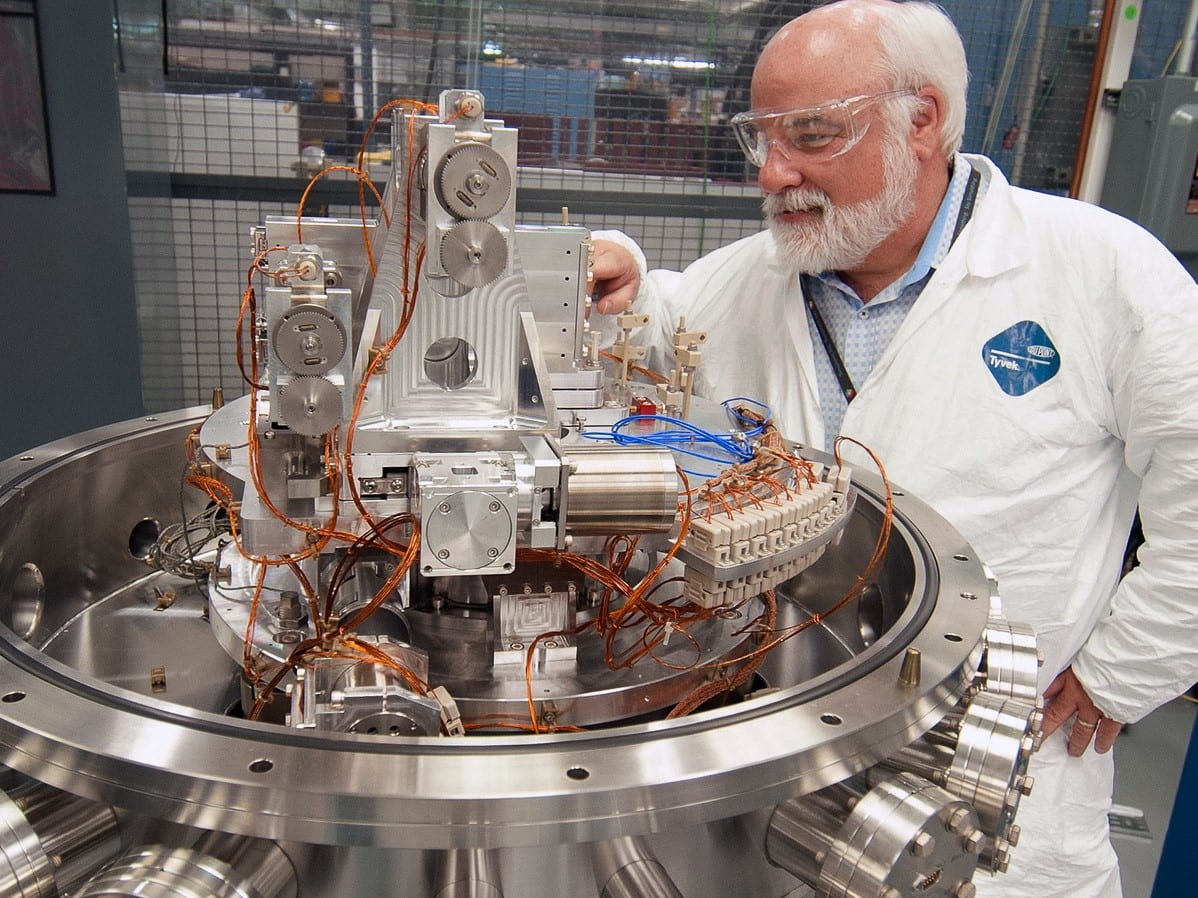

Center for Nanoscale Materials
The Center for Nanoscale Materials (CNM) at Argonne National Laboratory is a US Department of Energy Office of Science Nanoscale Science Research Center dedicated to nanoscience and nanotechnology. From X-ray microscopy that uses the power of the Advanced Photon Source to clean room–based nanofabrication techniques, the CNM provides a powerful combination of scientific resources. The CNM houses resources that enable electron paramagnetic resonance measurements of spin-dependent phenomena, a dilution refrigerator for measurements at the milli-Kelvin level, magneto-electro-optical spectrometer and magneto-optical photoluminescence microscope, and a JEOL JBX-8100FS electron beam writer with <10 nm resolution for device fabrication. A Quantum Entanglement and Transduction Laboratory is being assembled in the CNM. When complete, the laboratory will house tools for characterizing non-classical photon sources, quantum entanglement, and magneto-optical single spin responses. This effort will also result in the installation of an adiabatic demagnetization refrigerator for ease of access to milli-Kelvin temperatures. Learn More.
University of Illinois Urbana-Champaign Bardeen Quad
The engineering quadrangle, stretching from Engineering Hall to the Grainger Engineering Library, is named in honor of John Bardeen, the only person to win the Nobel Prize twice in the same field, physics.
